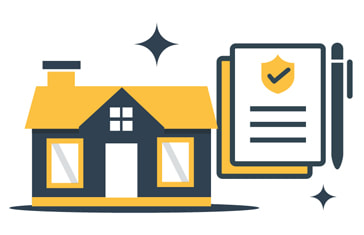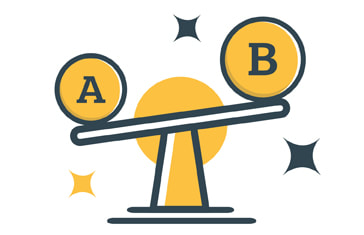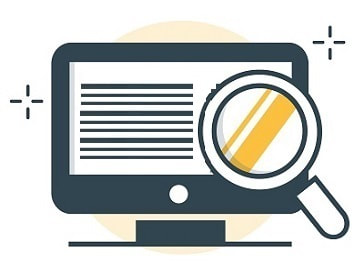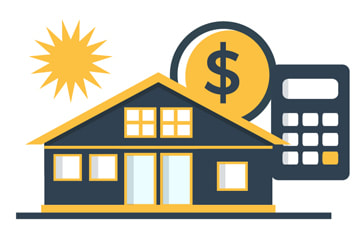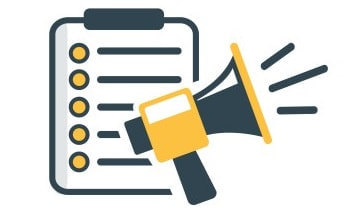Conveyancing - Lawyers vs Conveyancers (The Definitive New Zealand Guide for Anyone Involved in a Property Transaction)
Our definitive guide explains what conveyancing is, the difference between a lawyer/solicitor and a registered conveyancer, how to appoint someone, the fees and must-know tips to get the best conveyancing experience possible
Updated 26 July 2024
Summary
Our guide covers:
Disclaimer:
Summary
- Whether it’s purchasing a first home or selling an investment property, anyone dealing with a land-related transaction will come across conveyancing.
- Conveyancing is the transfer of legal ownership of a property from one person to another, and it involves a fair bit of paperwork. Because of the risk and high-value nature, you will likely seek the assistance of a solicitor or a registered conveyancer to help you.
- They will help you wade through the legalese, complete due diligence and provide you with advice along the way.
- Buying and selling property, as well as the financing associated with it, is complex, time-intensive and a costly process, where many things can go wrong.
- For such a major transaction, you want to have an experienced conveyancing professional on your side. Our guide outlines to find one that’s best for your needs.
Our guide covers:
- What is Conveyancing?
- Choosing a Conveyancer - Understanding the Difference Between a Solicitor and a Registered Conveyancer
- Where do I Find a Lawyer or Conveyancer?
- How Should I Choose Which Lawyer Or Registered Conveyancer To Work With?
- Understanding Fees
- Instructing Your Conveyancer
- Five Tips For Getting the Best Conveyancing Experience Possible
- What Happens If I’m Unhappy With My Conveyancer?
Disclaimer:
- The information in our guide to conveyancing does not constitute any form of legal advice, financial advice, advice in general, recommendation, representation, endorsement or arrangement by us.
- The information is not intended to be relied upon by you in making (or deciding not to make) any specific transaction decision or other decisions.
- You must carry out your own research into the most suitable conveyancing professional - a lawyer, solicitor, conveyancer, or someone else.
What is Conveyancing?
- Conveyancing involves transferring legal ownership of property from one person to another. You’ll encounter conveyancing if you buy or sell a property.
- You may also come across conveyancing if you are financing or refinancing your property, where you pay your existing loan with a new loan that has better terms.
- Conveyancers handle the paperwork required to make this transfer of ownership happen, from preparing draft contracts to arranging payment for the property.
While every sale or purchase of property is different, you can expect a conveyancer to help you with:
- Sale and purchase agreement: This is the contract between buyer and seller. A conveyancer will help you review the agreement, explain the key terms and risks, and witness your signature. They can also help you with any of the conditions set out in a sale and purchase agreement, such as ordering a building report.
- Helping you with due diligence: If you are buying property, you will have to do your homework to ensure your investment will be a good one. A conveyancer will help you with this.
- Search titles: They will conduct a title search to see if there is any legal information that will affect you, like whether there are covenants (rules governing how a landowner can use their piece of land) or easements (rights for another person to use the landowner’s land for a particular purpose) on the land.
- LIM reports: They will often help you access a Land Information Memorandum, which is a summary report on the property containing information such as permits and consents issued by the council, access to utilities, and potential hazards that affect the property. Your conveyancer will help you review this information.
- Financing a purchase: Your conveyancer will help you with the mortgage and loan documents that lenders require. They can also help you with securing a Homestart grant and withdrawing your KiwiSaver funds.
- Arranging transfer documents: There are other legal documents to prepare for transfers of ownership. Your conveyancer will handle this and explain what these documents mean.
- Completing the deal: On settlement day, the purchaser’s conveyancer will make sure funds are sent, while the seller’s conveyancers make sure the title is transferred to the purchaser.
Choosing a Conveyancer - Understanding the Difference Between a Solicitor/Lawyer and a Registered Conveyancer
A solicitor/lawyer or a registered conveyancer can do conveyancing. We outline the differences between the two types of conveyancing professional:
Solicitor/Lawyer
Registered Conveyancer
When it comes to choosing which type of conveyancing professional to do the job, you should think about:
Important: A registered conveyancer often cannot provide advice on these issues, while a solicitor (or their law firm) can. Engaging a solicitor is, for this reason, the most common choice in such situations as they take care of both your conveyancing and provide legal advice on these associated issues.
Important: How much do you value being able to track the progress of your conveyancing?
Smaller law firms and conveyancing practices may not use online tools that allow you to track progress at any time.
Solicitor/Lawyer
- Expertise: A lawyer will typically have a few areas of legal expertise. Conveyancing is done by solicitors who are familiar with property law and conveyancing.
- Training and qualifications: A lawyer must hold a law degree, which is a minimum of four years’ study and includes education across multiple areas of law. They must also complete further study after graduation to be admitted to the bar.
- Practice: A lawyer often works in a law firm with other lawyers, enabling them to share resources and expertise. Some lawyers will work independently with legal executives and other assistants to help manage tasks like preparing certain documents, conducting research and filing cases.
- Regulator: The New Zealand Law Society regulates lawyers, and they must hold a practising certificate from the Law Society if they want to practice in New Zealand. The New Zealand Law Society establishes and enforce rules of conduct and investigates complaints against lawyers.
Registered Conveyancer
- Expertise: A registered conveyancer is focused on property law and conveyancing.
- Training and qualifications: A person can become a registered conveyancer in two ways. They could study towards a diploma of conveyancing, which is a two-year course. Alternatively, they could work in conveyancing and apply to become a registered conveyancer after gaining five years of experience.
- Practice: A registered conveyancer may work at a law firm or operate independently. Before a registered conveyancer can apply to operate independently, they must have been supervised for two years post-registration. You can access the services of a registered conveyancer by making an appointment at physical offices, or you may be interested in working with online conveyancers.
- Regulatory body: The New Zealand Society of Conveyancers (NZSOC) regulates conveyancers. The Society of Conveyancers also sets out client care guidelines and investigates complaints against conveyancers.
When it comes to choosing which type of conveyancing professional to do the job, you should think about:
- How much will it cost? Land transactions are already costly enough, so you probably don’t want to incur a large bill for conveyancing if you can avoid it. Registered conveyancers are likely to charge lower fees compared to solicitors, but that depends on many other factors. The size of the practice (how many people the firm employs), the conveyancing professional’s amount of experience and the cost of living in the region (Auckland vs Dunedin etc.) will affect fees. For this reason, we cannot give an answer because there are many factors that go into the total cost.
- What kind of interaction do you want? Do you prefer to have one point of contact who you go to throughout the conveyancing process? You’re less likely to have a single person dedicated to your case if you engage a large law firm. Do you like face to face meetings, or are you happy with phone calls and video calls? You are unlikely to have many in-person meetings (if at all) if you use an online conveyancing service (where the conveyancer works remotely) or a conveyancing professional based in another region.
- Are there other legal questions you want to be answered that relate to this land transaction? The sale and purchase of land often triggers other legal issues. Some common ones are:
- Estate planning: A person may want to arrange how their assets will be dealt with on their death. For example, the person may own land and wish it to be transferred to a family member when they die.
- Ownership structures: A person may want to achieve certain legal objectives concerning their assets. Common objectives include attaining tax benefits and protecting assets from others. In New Zealand, it’s very common for a person to buy a property and transfer it to a trust. Doing this means the person no longer “owns” the property. However, depending on the trust’s structure, the person may still be able to reap the benefits associated with property ownership (e.g. accessing income generated through renting out trust property).
- Relationship property: A person who has been, will be, or is currently in a relationship may want to know how their relationships will affect the assets that person owns. For example, person A may have owned a property before marrying person B, and now person A wants to add person B as a joint owner of the home.
- Enduring Powers of Attorney: Person A may grant person B an enduring power of attorney. This means if for some reason, person A can’t make decisions on their personal or financial matters (like if person A falls into a coma or becomes mentally incompetent), person B can step in to make these decisions. Person B is called an attorney, and they may have to deal with the sale of person A’s properties.
Important: A registered conveyancer often cannot provide advice on these issues, while a solicitor (or their law firm) can. Engaging a solicitor is, for this reason, the most common choice in such situations as they take care of both your conveyancing and provide legal advice on these associated issues.
Important: How much do you value being able to track the progress of your conveyancing?
Smaller law firms and conveyancing practices may not use online tools that allow you to track progress at any time.
Next Steps:
- We suggest considering working with a lawyer if your land transaction involves other legal questions or is particularly complicated.
- If you choose a lawyer to help you with the conveyancing, make sure your lawyer is familiar with property law and conveyancing (while this sounds obvious, not everyone is, so it's best to go with experienced professionals).
- If your transaction is relatively straightforward, a registered conveyancer is an option and you'll be able to take advantage of lower fees (compared to a lawyer).
- Online conveyancing services are typically cheaper than non-online services. Conveyancing is done remotely, and the documentation can largely be completed without face to face meetings. However, you may need to visit a Justice of the Peace to witness certain documents.
Where do I Find a Lawyer or Conveyancer?
Once you know which type of conveyancing professional you’d like to engage, the next step is to identify a few solicitors or registered conveyancers to contact. A few starting points are:
- Ask friends and family for their recommendations, especially if their land transaction took place in a similar location to your property. Friends and family will be able to provide you with their personal experience working with a particular conveyancing professional, which can be helpful for your shortlisting.
- Use online directories. If you want to engage a solicitor, you can search the Property Lawyers database here. You’ll see that solicitors with over ten years of property law experience are highlighted.
- If you want to engage a registered conveyancer, you can search the New Zealand Society of Conveyancers’ registry here.
- Your real estate agent or mortgage broker may recommend certain conveyancing professionals. While these conveyancers may indeed provide great service at a great price, don’t take these recommendations without doing your own research, as there is often a financial incentive for your real estate agent or mortgage broker to recommend a certain conveyancer.
- Your lender may also provide recommendations for conveyancers. Again, you should be aware of a possible commercial relationship between your lender and any conveyancers they recommend.
How Should I Choose Which Lawyer Or Registered Conveyancer To Work With?
After shortlisting several conveyancing professionals to contact, you should investigate which one is best for you. Who you choose to instruct depends on your circumstances and your priorities. Here are ten questions to ask:
- Is this person registered with their respective regulatory body? You want to make sure whoever is doing your conveyancing has the right qualifications and understands their society’s code of conduct. You can ask the solicitor/registered conveyancer themselves, search the registry online for the relevant society, or get in touch with the society.
- What kind of reputation does this conveyancing professional have? Look at Google reviews, testimonials on their website or recommendations on LinkedIn. If you know anyone who has used the solicitor/registered conveyancer before, ask what they thought.
- How much experience does the conveyancing professional have? While an experienced conveyancer may cost more per hour, they will likely do a better job than an inexperienced conveyancer. Ask the conveyancing professional about their experience and familiarity with the circumstances of your land transaction.
- How much does this solicitor/registered conveyancer charge? Compare fees before making your decision. Don’t be afraid to ask for cost estimates from several different conveyancing professionals.
- Is the solicitor/registered conveyancer familiar with the region in which your property is situated? A conveyancing professional who is across recent developments in the neighbourhood and changes to local regulation can complete the due diligence process faster (and probably arrive at more accurate conclusions) than a professional with no local knowledge.
- If you wish to instruct a solicitor, do they have property law expertise? Look for a law firm that exclusively does conveyancing or that specialises in property law. While all registered conveyancers are very familiar with property law, not all solicitors will be. Some solicitors may not have touched property law since law school years ago, so make sure you ask.
- Does this person/their practice have time to take on my conveyancing? You may have found your ideal conveyancer, but it’s no good if they don’t have the capacity to take on your transaction. The person you wanted to handle your matters may have a holiday booked in during the period in which you need conveyancing done, or they may be about to take parental leave. If your preferred conveyancer is unavailable, would you be open to waiting until they have capacity? In most cases, the answer is likely to be no.
- Who will have responsibility for your conveyancing work? An experienced conveyancing professional will typically be responsible for your conveyancing work. Sometimes, the actual execution (or part of it) may be passed on to their colleagues with less experience while the senior practitioner provides oversight. This is especially common at large law firms. Ask who has final responsibility for the conveyancing and inquire into the credentials of anyone else who will be working on your matter.
- Does this person/their practice communicate well with you? Even in the early stages, how do you feel about the interactions with the solicitor/registered conveyancer? Do they communicate professionally? Do they use plain English and take the time to explain legal concepts to you? Do they respond to your inquiries in a timely manner and with patience and empathy?
- How easy is it to track progress made on your conveyancing? Some practices have online tracking interfaces that make it easy for you to keep tabs on progress. Some practices are very proactive about providing clients with updates on how their conveyancing matters are coming along.
Understanding Fees
For most people, fees are an important factor in choosing a conveyancer. The major cost buckets for conveyancing fees are time costs (time spent on your conveyancing matter), disbursements, GST, office fees and urgency fees.
There are different ways your fees could be structured. You may pay one fixed fee, regardless of how much time your conveyancer spends. Alternatively, you may be charged on a time basis, where your conveyancer charges you a certain amount per hour. As another alternative, you may be charged a percentage of the value of your property.
With the other cost buckets, make sure you know what is included and what isn’t included when you receive your cost estimate.
Must Know Tips: Don’t settle for the cheapest option just because it’s the cheapest.
There are different ways your fees could be structured. You may pay one fixed fee, regardless of how much time your conveyancer spends. Alternatively, you may be charged on a time basis, where your conveyancer charges you a certain amount per hour. As another alternative, you may be charged a percentage of the value of your property.
With the other cost buckets, make sure you know what is included and what isn’t included when you receive your cost estimate.
- Disbursements are costs incurred in the conveyancing process that don’t go to the conveyancer. For example, your conveyancer pays a fee for conducting each title search on Land Information New Zealand.
- Some practices charge additional office fees for costs such as photocopying and printing, and couriers.
- Some practices may also charge extra if any work needs to be done under urgency.
Must Know Tips: Don’t settle for the cheapest option just because it’s the cheapest.
- Your land transaction is probably worth several hundred thousand dollars (or even millions of dollars). When such a large sum of money is at stake, and there’s a lot of room for things to go wrong, you don’t want to skimp on your conveyancing.
- Paying a couple of hundred dollars extra for a great conveyancer will reduce your headaches throughout the transaction and may save you thousands of dollars in the long run if a problem arises.
- You should be particularly conscious of not going for the cheapest option if you are the purchaser. New Zealand law supports the principle of “caveat emptor” (buyer beware). This means that a buyer who carelessly makes a purchase and then suffers buyer’s regret will have little legal protection. In this case, you want to ensure your conveyancing professional does a good job of legal, due diligence and completes the conveyancing documents.
- When you’re comparing fees from different conveyancing professionals, are there any that are particularly low? If so, ask why. Request a detailed breakdown of the fees so you can identify whether any of the cost buckets have been excluded.
- You should also be aware of what happens if the sale or purchase falls through. It’s a good idea to clarify early on how an unsuccessful sale/purchase will impact your fees. Is it “no move, no fee”? Will you receive a discount? Ideally, you should ask these questions before you agree to engage a particular person or practice to act on your behalf. If you’re paying a fixed fee or fee as a percentage of the property value, you should also ask how many unsuccessful attempts your fixed fee includes.
Instructing Your Conveyancer
Now you’ve selected your conveyancer, let’s go through what to expect at each stage of the conveyancing process. We’ve highlighted a few things for you to look out for at each major step.
- Engagement of your conveyancer: the first thing you should expect from your conveyancer is a letter of engagement. This will list the terms on which your conveyancer will act for you and the fees you will be charged. You should read this document carefully and ask if you don’t understand any of the terms before you sign. Once you have confirmed that the conveyancer will act on your behalf, let your real estate agent and lender know.
- If you are a purchaser making an offer at an auction: your conveyancer will work with you to conduct due diligence on the property up for auction before the auction occurs. Armed with plenty of information, you can be confident making bids at the auction.
- If you are a purchaser making an offer through negotiation: if the seller is interested, the real estate agent will give your conveyancer a draft of the sale and purchase agreement for review. Your conveyancer may revise this agreement for your benefit, such as adding conditions into the contract. You’ll need to clarify whether you’re happy with this revised agreement – if you are, it will be sent to the seller as an offer to purchase the property on the terms outlined in the agreement. This process can happen very quickly, over 24-48 hours.
- The condition process: once the seller has accepted your offer to purchase, the condition process begins. During this time, you’ll work with your conveyancer and mortgage broker to confirm financing for your purchase. If you’re not purchasing through auction, you’ll also conduct your due diligence during this time to make sure the property doesn’t contain any nasty surprises.
- Loan documentation: after your lender arranges final approval of your home loan, they will send a set of home loan documents to your conveyancer. Your conveyancer will review these documents and complete most of this paperwork, which you should expect to take a minimum of 48 hours. After this, your conveyancer will typically arrange a meeting with you to explain what the documents mean and the impact of signing the documents. Bring a form of photo identification (your passport or drivers’ licence) to this meeting as your conveyancer will need it to complete mandatory anti-money laundering checks.
- Transfer of funds: once your loan documents are signed, your lender will wire the money to your conveyancer’s trust account. You will also transfer your deposit into your conveyancer’s trust account.
- Completing the deal: your conveyancer will ensure that you and the other party have signed the sale and purchase agreement. On settlement day, conveyancers make sure the money is transferred to the seller and the title transferred to the buyer. The seller then gives the keys to the property to the real estate agent.
Five Tips For Getting the Best Conveyancing Experience Possible
- Communication is key. As in any relationship, professional or otherwise, regular communication makes everyone’s life better. Tell your conveyancer what you expect from them overall and from a communication perspective. When do you want to receive updates? How do you want to do communications – do you prefer emails, phone calls, or in-person meetings?
- Flag important information from the outset. For example, let your conveyancer know about timelines and key dates well in advance so they can plan around it.
- Work collaboratively. Provide as much relevant information as early as you can to help them complete their work. Establish what your conveyancer will do and what you need to do.
- Ask about anything you don’t understand. It’s your conveyancer’s job to explain the conveyancing process to you; there are no silly questions. The last thing you want is to sign a document you don’t fully understand for a transaction as big as a property sale or purchase. Collect questions as they crop up, so you have a list of them to ask your conveyancer at meetings.
- Prepare for meetings. Ask your conveyancer beforehand if you need to bring anything with you. Think of any questions beforehand so you can have these clarified during meetings. Take notes so you can refer to them later if you forget anything important.
What Happens If I’m Unhappy With My Conveyancer?
Unfortunately, you may experience a situation where you’re unhappy with the work that your conveyancer has done or billed, or the service has affected the settlement on a property. This is the usual process to resolve such issues:
1. Raise the issue
The first step is to bring up the matter with your conveyancer. Explain why you’re unhappy and provide the context. Ask for an explanation from your conveyancer – perhaps they have a valid reason.
2. Make a complaint
If you’re not satisfied with your conveyancer’s explanation or if the same issue crops up again, you can lodge a complaint. Your conveyancer’s letter of engagement should contain information on how to make a complaint. To prepare, you should think about:
Are there formal grounds on which you can complain? A conveyancing professional must:
What’s your ideal outcome? Do you want your fees reduced? Do you want a sincere apology? Do you want a complete refund?
What evidence do I have? Gather as much evidence as possible. Have examples ready and collect important information such as dates, times and names.
Document everything that happens during the complaints process, from your preparation to your conveyancing professional’s response. If the same issue crops up again or if you’re still unsatisfied with the outcome, you’ll have strong evidence to make a formal complaint to the professional’s regulatory body.
3. Dispute resolution through regulatory bodies
If you are very unhappy with your conveyancer, you can escalate your complaint to the Law Society or the Society of Conveyancers. These societies will generally hear complaints about misconduct, poor service/professionalism, and fees (over $2,000 for lawyers and $500 for conveyancers).
A Standards Committee will look into your complaint. The Committee may recommend mediation or negotiation to settle the dispute. The Committee may also conduct a formal inquiry into your conveyancer’s behaviour. In this case, the Committee may order that your conveyancer apologises to you, pay you up to $25,000 in compensation for any losses, fix their mistakes at their own cost, pay a fine, or reduce/refund your fees.
1. Raise the issue
The first step is to bring up the matter with your conveyancer. Explain why you’re unhappy and provide the context. Ask for an explanation from your conveyancer – perhaps they have a valid reason.
2. Make a complaint
If you’re not satisfied with your conveyancer’s explanation or if the same issue crops up again, you can lodge a complaint. Your conveyancer’s letter of engagement should contain information on how to make a complaint. To prepare, you should think about:
Are there formal grounds on which you can complain? A conveyancing professional must:
- Follow your instructions and act in your best interests.
- Do their work to a high standard and on time.
- Explain what they will do in a way that you understand
- Charge you a reasonable amount and explain what you will be charged for
- Protect your privacy
- Treat you professionally and respectfully.
- Keep you updated on the progress.
- Deal with complaints fairly and quickly
What’s your ideal outcome? Do you want your fees reduced? Do you want a sincere apology? Do you want a complete refund?
What evidence do I have? Gather as much evidence as possible. Have examples ready and collect important information such as dates, times and names.
Document everything that happens during the complaints process, from your preparation to your conveyancing professional’s response. If the same issue crops up again or if you’re still unsatisfied with the outcome, you’ll have strong evidence to make a formal complaint to the professional’s regulatory body.
3. Dispute resolution through regulatory bodies
If you are very unhappy with your conveyancer, you can escalate your complaint to the Law Society or the Society of Conveyancers. These societies will generally hear complaints about misconduct, poor service/professionalism, and fees (over $2,000 for lawyers and $500 for conveyancers).
A Standards Committee will look into your complaint. The Committee may recommend mediation or negotiation to settle the dispute. The Committee may also conduct a formal inquiry into your conveyancer’s behaviour. In this case, the Committee may order that your conveyancer apologises to you, pay you up to $25,000 in compensation for any losses, fix their mistakes at their own cost, pay a fine, or reduce/refund your fees.


